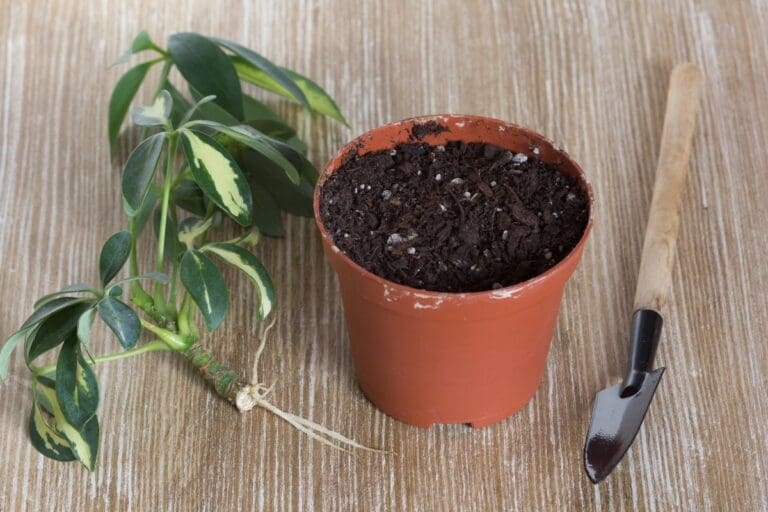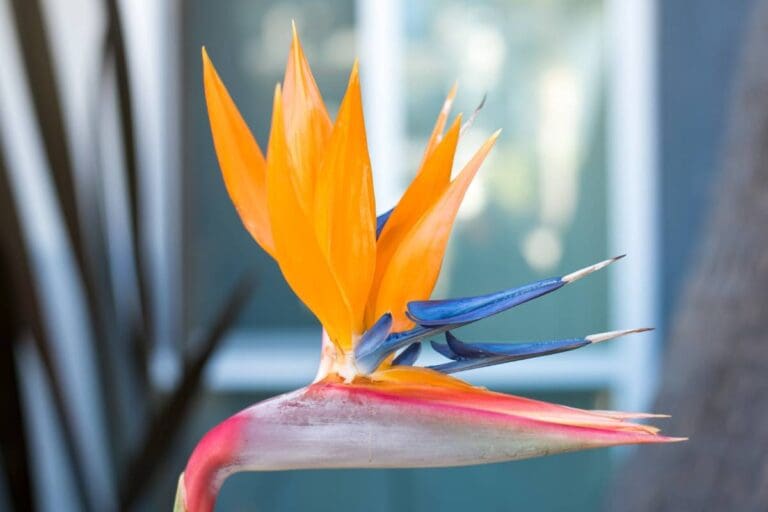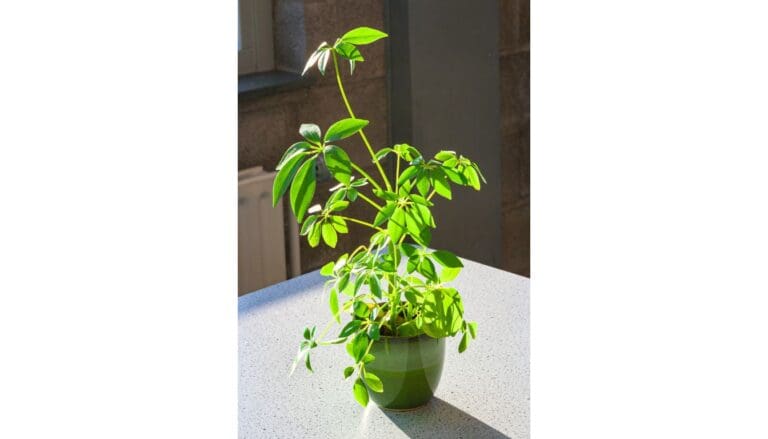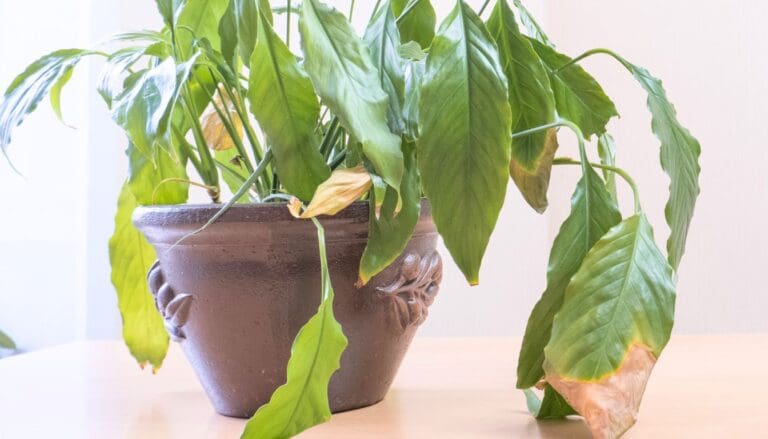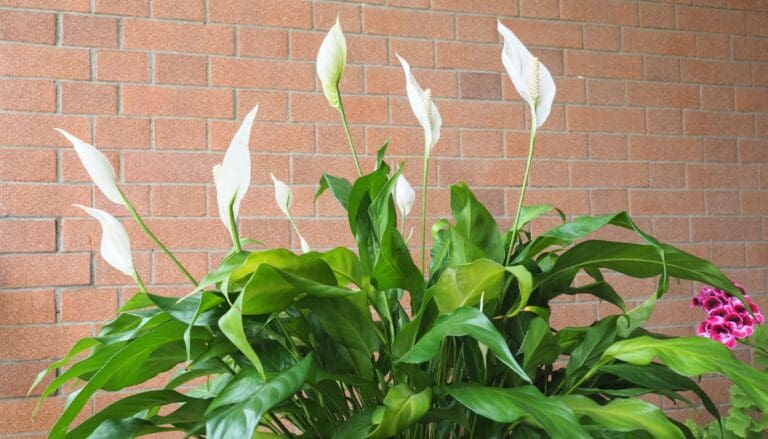Does Jade Plant Like Coffee Grounds?
Many planters are seen using coffee grounds in different ways for their jade plant. In addition, experts often advise coffee grounds for indoor plants. But are coffee grounds suitable for the jade plant?
Coffee grounds are beneficial for your jade plant if it is used in the form of compost, mulch, or liquid fertilizer. Avoid adding coffee ground directly to the soil as it can lead to severe problems like high acidity in the soil, pest infestation, fungal growth, and stunted growth in the plant.
Jade plants like to have acidic soil, and coffee helps it in making the soil acidic. So the coffee ground can help give your jade plant a nutrient boost.
However, you must use it coffee grounds correctly; else, it may give opposite results.
So let us go through the whole discussion to understand the importance of coffee ground and how you should use it for your jade plants.

Please note: Simplify Plants is reader-supported. Some links in the post are affiliate links and I get a commission from purchases made through links in the post.
Is coffee good for jade plants?
Coffee grounds are suitable for the jade plant, but you should regulate their use. One shouldn’t use coffee grounds directly on your jade plant. It needs to be prepared correctly to rip their benefits.
One of the best things about coffee is, it is readily available in our households.
Coffee contains many nutrients such as nitrogen, potassium, phosphorus, and magnesium. These entire nutrients are essential for the growth of the succulent plant.
Let us know how coffee ground helps the jade plant.
Nitrogen: Coffee is very rich in nitrogen, and plants love to have nitrogen in the soil. Nitrogen boosts the growth of the plant, and its deficiency can cause many problems in the plant. Adding coffee ground in the form of liquid fertilizer or mulch in the soil will help the jade plant thrive.
Other minerals: Coffee grounds are also a rich source of other minerals such as potassium, magnesium, and phosphorus that can also support plant growth.
One thing that you should always keep in mind is that the coffee ground is acidic. Therefore, it will increase the soil’s Ph level. Hence, you must always check the soil’s pH level before adding the coffee ground to the soil.
How do I add coffee grounds to a jade plant?
The jade plant has the capabilities to grow on its own without too much caring. However, adding coffee ground is somewhat beneficial for them.
The coffee ground can be used on jade in many ways, such as a mixture with compost, mulch, or used as compost tea.
The coffee ground can be used by diluting the coffee grounds with water.
Unfortunately, the succulent plants do not have enough microbes to break down the coffee and utilize its nutrients.
Composting

The nitrogen in the coffee helps the compost to break down even faster than it does. So, while composting coffee grounds, look for the following points.
- Keep the composting dry so that the decomposition may get faster.
- You can add other composting items such as dry leaves, sticks, and broken stems to the compost.
- Brown compost material also helps in preparing balanced compost.
- Adding the compost with the potting soil may give the best results. The correct ratio is 1:3, i.e., one part of compost and three parts of potting soil.
Mix coffee ground with compost tea

The coffee ground can also be used as a compost tea. However, it is a much better option to enrich your plant with the coffee benefits.
You can consider this as a liquid fertilizer. Liquid fertilizer can be created by following the method given below:
- Put coffee ground in a pot. Please keep it for a few days and let the coffee grounds seep into the water. Now, pour the liquid fertilizer into the soil.
- Another way is to add two cups of used coffee ground to five gallons of water and mix it. Now, let it get soaked for a night. It can be used as a compost tea on the soil of the jade plant.
- Do not pour water two days after giving the liquid fertilizer to the jade plant.
Mix coffee ground with mulch
The coffee ground can also be used with a mixture of mulch. You can add compost and other organic items to this mulch.
Coffee grounds have fine particles. This particle will form a layer on the soil if not used correctly and may cause moisture retention.
You can use a coffee ground mixture with mulch in the jade plant in the following manner:
- Add coffee grounds with compost and other organic matter. Now, add mulch around the soil of the jade plant.
- Another way to use coffee ground with the mulch is by putting a half-inch layer of coffee ground and about four inches layer of mulch in the soil of the jade plant.
Problems of using coffee grounds on jade plant
Coffee grounds have many benefits only if it is used in a proper systematic manner. However, excess use of coffee grounds may even harm your jade plant.
Following are the disadvantages of adding coffee grounds to the jade plant, if not done carefully.
Moisture retention

Moisture retention in the indoor plant is not good. Coffee grounds bring this prevalent problem to the jade plant.
Due to the fine particles present in the coffee, it changes the texture of the soil and makes it clayey. As you know, jade plants don’t like too much moisture; thus, the plant may suffer.
Change in soil texture
Adding too much coffee ground to the soil of your jade plant will make it clayey. And as a result, there are chances that it will become very hard when it dries out.
When the coffee dries out, it hinders the plant’s growth by blocking the soil from providing necessary nutrients to the plant.
To deal with the situation and avoid this from happening, you need to add other organic matter and keep the coffee ground amount in check.
Hinders growth in young plant
Coffee grounds may help the matured plant grow even further and have all the nutrients, but that may not be the situation in young and fresh plants.
Coffee grounds are acidic, and it often makes the soil acidic. These acidic soils act as a hindrance to plant growth.
Antibacterial effect
Coffee has antibacterial properties which are helpful for humans, but this might not be helpful for the jade plant.
Due to the acidic nature of the coffee grounds, some of the good bacteria and microorganisms also get killed.
These microorganisms and bacteria are essential for plant growth. Sometimes coffee ground restricts the growth of the jade plant.
Fungal growth
As you know, the particles in the coffee ground cover the soil and form a layer that retains the moisture and water in the soil. As a result, the soil and roots may stay wet for longer periods.
Due to excess moisture in the soil, fungus and bacteria get the perfect environment for their growth.
Acidic properties
Jade plans love the acidic base, and coffee grounds provide this acidic base. But they can tolerate the acidic level to an extent. The ideal pH level for the jade plant is 6.0-8.0.
If the soil gets much acidic, it may harm the growth of the jade plant that may also lead to leaf yellowing and leaf drop.
How much coffee grounds can I use for a jade plant?
You can add coffee grounds to the plant in the following way:
- One part of coffee ground and the other three parts of soil is the general formula. But the formula varies with the size and pH level of the soil.
- Another way is to mix coffee ground and mulch in the ratio of 1:10 and apply the same.
- Also, another common way is to pour the prepared liquid fertilizer with water in a 1:5 ratio.
How often should coffee grounds be added to the jade plant?
It would be best if you did not use coffee grounds regularly. You can add it to the plant in 2-3 months, and that too with the other organic mixtures.
The small jade plant won’t be able to absorb the nutrients of the coffee. So, it is recommended to use diluted liquid fertilizer for them.
Final words
Coffee grounds improve the soil quality by increasing the pH level of the soil. In addition, due to its nitrogen-rich qualities, it supports plant growth. If you don’t want to use coffee ground then, an excellent organic alternative of coffee ground shall be Espoma Indoor Liquid Plant Food.
If appropriately used, the coffee ground can suppress bacteria and fungal diseases.
Always use appropriately prepared coffee ground mix for the succulents and check the soil’s pH level before using it.
Source: Coffee grounds benefits, Field Evaluation of Coffee Grounds Application for Crop Growth, Effect of fresh and composted spent coffee grounds.
Recommended Garden Supplies
| Product Image | Our Recommended Gardening Supplies | Check Offers! |
|---|---|---|
Top Top
Top
Top
Top
Top
Top
Top
Top | rePotme Houseplant and Tropical Classic Potting Soil Mix | Check Offer On Amazon |
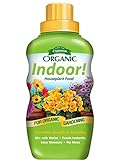 Top
Top
Top
Top
Top
Top
Top
Top | Espoma Organic Indoor Plant Food | Check Offer On Amazon |
 Top
Top
Top
Top
Top
Top
Top
Top | GooingTop LED Grow Light 6000K Full Spectrum Clip Plant Growing Lamp | Check Offer On Amazon |
 Top
Top
Top
Top
Top
Top
Top
Top | Soil Moisture Meter | Check Offer On Amazon |
 Top
Top
Top
Top
Top
Top
Top
Top | Govee Hygrometer Thermometer, Bluetooth Enabled! | Check Offer On Amazon |
 Top
Top | LEVOIT Humidifiers for Large Room(Best For Plants) | Check Offer On Amazon |
 Top
Top
Top
Top
Top
Top
Top
Top | Upgraded DIY Automatic Drip Irrigation Kit, 15 Potted Houseplants Support | Check Offer On Amazon |
 Top
Top
Top
Top
Top
Top
Top
Top | Stainless Steel Heavy Duty Gardening Tool Set | Check Offer On Amazon |
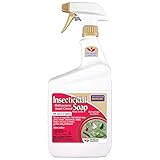 Top
Top
Top
Top
Top
Top
Top
Top | Bonide Insecticidal Soap | Check Offer On Amazon |
 Top
Top
Top
Top
Top
Top
Top
Top | Bonide 32 oz Spray Neem Oil for Organic Gardening | Check Offer On Amazon |
 Top
Top
Top
Top
Top
Top
Top
Top | Garden Safe Fungicide | Check Offer On Amazon |

